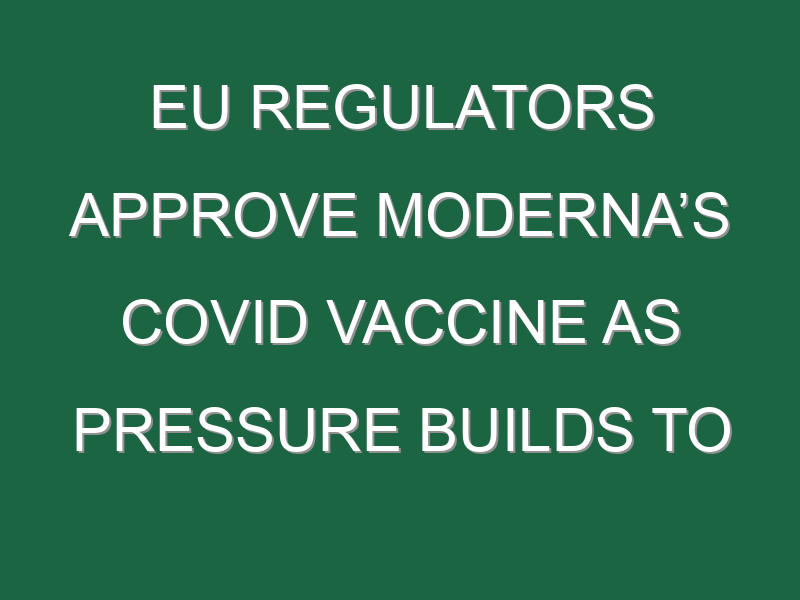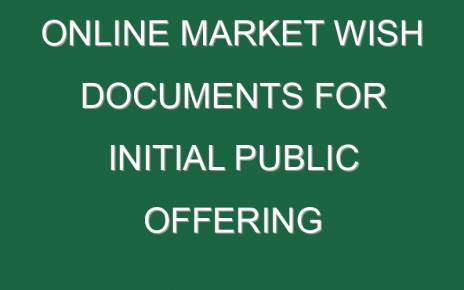Moderna Inc.’s COVID-19 vaccine won the backing of the European Union drugs regulator, clearing the way for a second weapon in the bloc’s fight to stem the pandemic.
The recommendation was announced by the European Medicines Agency on Wednesday. The European Commission is working “at full speed” on the final clearance step, President Ursula Von Der Leyen said in a tweet.
EU leaders are facing growing pressure to speed up clearance and deployment of vaccines to tame a virus resurgence across the continent. The 27-nation bloc began immunizations last week with the vaccine developed by Pfizer Inc. and BioNTech SE, but the pace of the rollout has been uneven, prompting unfavorable comparisons with the U.K. and U.S.
France had vaccinated fewer than 10,000 people so far, compared with more than 300,000 in Germany, heaping pressure on President Emmanuel Macron to accelerate the deployment. The U.S., by contrast, has immunized more than 5 million people, and Britain more than 1.3 million.
Moderna shares rose 2.6% before U.S. exchanges opened. The vaccine was developed with the National Institutes of Health and is given in a two-dose regimen. Like the Pfizer-BioNTech shot, it’s based on messenger RNA technology that previously hadn’t been used in immunizations. The Moderna shot was cleared for emergency use by U.S. regulators on Dec. 18.
“This vaccine provides us with another tool to overcome the current emergency,” Emer Cooke, the EMA’s executive director, said in a statement. “We will closely monitor data on the safety and effectiveness of the vaccine to ensure ongoing protection of the EU public. Our work will always be guided by the scientific evidence.”
The EU recently announced that it would trigger an option for 100 million additional doses of the Pfizer-BioNTech vaccine, raising the total from the companies to 300 million. It’s also negotiating a deal that could as much as double that amount, people familiar with the talks said Tuesday.
The bloc has ordered 160 million doses of the Moderna vaccine, the company said last month.
Moderna will likely start delivering doses within the next week, German health minister Jens Spahn said Wednesday. Germany expects to get more than 50 million doses, he said.
Shots from AstraZeneca Plc and the University of Oxford are also anticipated, though it may be some weeks before they’re approved. After the EMA said last week it hadn’t received enough information to review the Astra-Oxford vaccine, Astra submitted a “substantial” data package and said it would work closely with the EMA to support the start of a formal application process.
More Restrictions
Vaccines are considered the ultimate weapon against the coronavirus, which has infected more than 86 million people worldwide and killed more than 1.86 million. But getting shots into people’s arms presents a huge logistical challenge and will take months, leaving governments little choice but to impose restrictions on public life to keep the pathogen from spreading out of control.
Britain, Germany and Italy all announced tougher measures to contain the spread of the virus this week.
“With every jab that goes into our arms, we are tilting the odds against Covid,” U.K. Prime Minister Boris Johnson said a televised address late Monday. “The weeks ahead will be the hardest yet, but I really do believe that we are entering the last phase of the struggle.”
More health care and Big Pharma coverage from Fortune:
- The biggest conspiracy theories of 2020 (and why they won’t die)
- Timeline: From the first coronavirus cases to the first vaccinations
- Trump hyped Verily’s coronavirus testing tool. It led to less than 1% of all tests in 2020
- Commentary: Cracking the code of biological aging could solve America’s health care crisis
- Data delays aren’t slowing the global rollout of a Chinese COVID-19 vaccine




